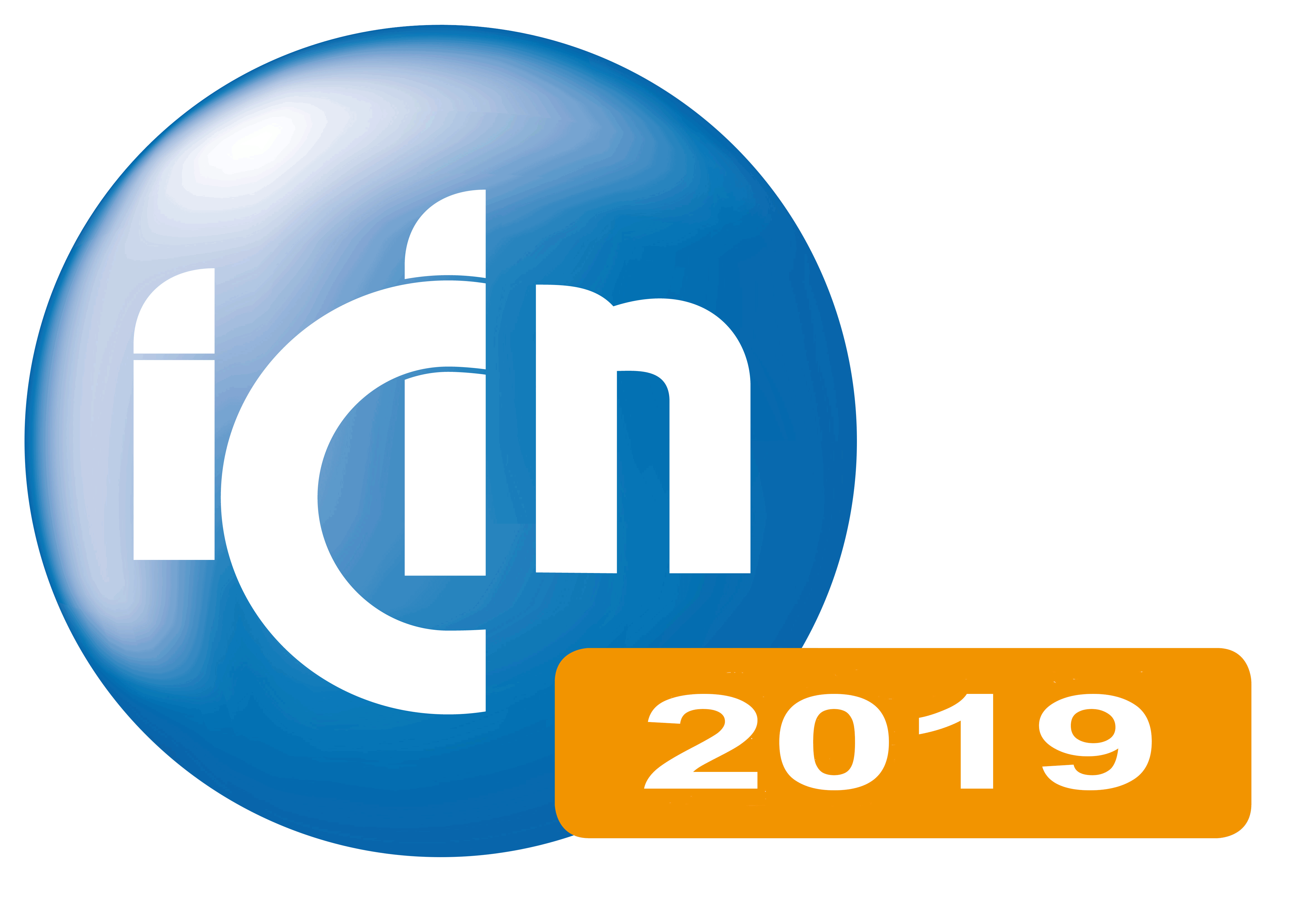
09:30 - 09:35 Welcome and Introduction
09:35 - 09:50 The RINArmenia initiative
09:50 - 10:30 Industry panel discussion on challenges and opportunities for RINA adoption
10:30 - 11:00 Coffee Break (demos will be setup in the room)
11:00 - 13:00 Technical Session - Chaired by Eduard Grasa (Fundació i2CAT)
13:00 - 14:00 Lunch
RINA 2019 is a half-day conference, co-located with ICIN 2019. Check RINA 2019 for details.
Registration can be done solely to RINA 2019, but a reduced attractive rate is available for a full event including ICIN 2019.
We encourage RINA 2019 participants to register the full event.
| Registration by Jan 15, 2019 | |||
| RINA Author* | 360.00 € | ||
| Author Full Event^ | 708.00 € | ||
| Early Bird Registration by Jan 15, 2019 | Advance Registration by Feb 5, 2019 | Late Registration | |
| RINA Regular Rate° | 400.00 € | 440.00 € | 480.00 € |
| RINA Reduced Rate°° | 360.00 € | 400.00 € | 440.00 € |
| Full Event^ Regular Rate° | 768.00 € | 828.00 € | 948.00 € |
| Full Event^ Reduced Rate°° | 708.00 € | 768.00 € | 888.00 € |
| Student (Full Event) | 360.00 € | 420.00 € | 456.00 € |
| Extra gala dinner | 80.00 € | ||

Abstract: This talk will introduce the goals of the RINArmenia initiative, a partnership between the Armenian government and private entrepreneurs. RINArmenia has the long-term goal of deploying RINA-based technology as an alternative to the current Internet; first in Armenia and later expanding through the world. Over the coming months a group of scientists and researchers will be formed in Armenia to operate the new computer network architecture and launch it through the country.
Biography: to be announced
Abstract: This panel will discuss challenges and opportunities for RINA adoption with three industry experts. The panel will feature an interactive discussion touching on topics such as what are the top RINA opportunities in different industries; what are the technical and business challenges that are more difficult to deal with; the usual objections to RINA adoption or how these can be overcomed.

Sue Rudd brings to Strategy Analytics a unique range of marketing strategy and business experience across wireless, fixed telephony and internet services. At Strategy Analytics she focuses on matching new technology to business opportunities for SON, HetNets, Small Cells and Wi-Fi Interoperability as well as service opportunities for Network Slicing, SDN/NFV, Edge Services, Video Delivery Optimization and Telco Cloud. Her reports cover competitive analyses of service platforms, OSS transformation, Cloud database requirements and business cases to maximize CSP Revenue per GB. Prior to joining Strategy Analytics, Sue worked for Comverse Technologies (now Mavenir) developing business cases for converged fixed and mobile IP services and VoIP over 3G. Previously at Motorola Cellular Infrastructure (now Nokia Networks) she coordinated wireless data services and directed projects for mobile network management and Intelligent Networking. Sue has over 30 years’ experience selling to Internet, Telecommunications and Mobile service providers for multiple RF and ‘dot.com’ startups, Codex (Motorola’s modem and Enterprise T1 subsidiary), BBN (now Raytheon) and Burroughs Corp. (now Unisys).

Neil Davies is an expert in resolving the practical and theoretical challenges of large scale distributed and high-performance computing, particularly scalability effects in large distributed systems, their operational quality, and how to manage their degradation gracefully under saturation and adverse operational conditions. He is a computer scientist, mathematician and hands-on software developer who builds rigorously engineered working systems and scalable demonstrators of new computing and networking concepts. Throughout his 20-year career at the University of Bristol he was involved with early developments in networking, its protocols and their implementations. He collaborated with organisations such as NATS, Nuclear Electric, HSE, ST Microelectronics and CERN on issues relating to scalable performance and operational safety. He was also technical lead on several large EU Framework collaborations relating to high performance switching, and has mentored PhD candidates at CERN. He co-founded Degree2 Innovations in 2000, commercialising network QoS research, and went on to found Predictable Network Solutions in 2003. He has worked on performance aspects of the Department of Defense’s Future Combat Systems project, and has developed approaches to delivering consistent video telephony for sign language users over retail broadband. He is the co-author of several patent families.

Sven van der Meer is a Master Engineer at the Network Management Lab at Ericsson. My team started designing a closed control loop pattern called Sahara, which resulted into a major contribution to Ericsson's COMPA architecture. We then moved to adaptive policies; a topic I've been working on for more than 10 years now. We developed a Unifying Policy Theory (UPT) and did build an Adaptive Policy EXecution Environment (APEX). The APEX software is now subject to an open source contribution. In this context, my team is heavily involved in the Linux Foundation project ONAP, mainly the Policy Framework. I am also involved in advancing RINA, the Recursive InterNetwokring Architecture contributing to the Pouzin Society as well as participating in European projects (FP7 PRISTINE, H2020 ARCFIRE). We gained significant knowledge from the scientific, research, and development activities in the RINA community. Our particular interest is in advancing network management, as in decreasing variance and increasing invariance. This work also informs the product road map of Ericsson network management product my team is contributing to. I was also involved in some standard activities, namely the IETF SUPA policy information model and the MEF modelling work. A large part of my work is dedicated to patents and publications, with regular contributions to IEEE/IFIP NOMS, IFIP/IEEE IM, IEEE CNSM, and some journals in the area of network and service management.

Raghu Ranganathan has been with Ciena since 1998. He has worked extensively on Product Development, Strategy and Standards related to Connectivity Services, Edge Computing, IoT, Network/Service Architecture and Multi-domain Service Orchestration. He has been active in MEF since 2003 and, during 2011-2017, was member of Board of Directors in MEF as well as Co-Chair of Committee developing MEF Specifications. In addition, he has been Editor of multiple MEF Specifications. He is also active in multiple industry activities including ONAP and TIP. Dr. Ranganathan is a Senior Member of IEEE.
(Click here to download CFP in PDF format)
During the last decade research funding bodies have allocated money to fund “Future Internet” or “Clean-slate” designs that could reduce network complexity by redesigning the network protocol architecture, questioning some of its key principles. Industry groups such as the ETSI ISG NGP are looking at alternatives to the current “TCP-IP” protocol suite. However, few initiatives have really been able to “clean the slate” and question the core model and underlying principles of current Internet protocols. Of those who have done it, RINA – the Recursive InterNetwork Architecture - is probably the simplest yet most general solution.
RINA goes back to the early days of network research, in which operating systems and distributed applications were the model for thinking about packet networks. Networking was though as the enabler of distributed computing. Hence the main function of networks was to communicate applications, not devices. RINA builds on the premise that networking is Inter-Process Communication (IPC) and only IPC, to provide a theory and a model that reconstructs the overall structure of the Internet, forming a model that comprises a single repeating layer, the DIF (Distributed IPC Facility), which is the minimal set of components required to allow distributed IPC between application processes. RINA supports inherently and without the need of extra mechanisms mobility, multi-homing and Quality of Service, provides a secure and configurable environment, motivates for a more competitive marketplace and allows for a seamless adoption
We solicit papers that investigate the application of RINA in different types of network segments and applications, papers reporting on prototype implementations, experimental deployments and interoperability with existing technologies.
Main track: Submitted papers must be original work, not under review at other journals/conferences, and may comprise a maximum of 6 A4 (210 mm x 297 mm) pages in 2-column IEEE conference style with a minimum font size of 10 pt. Papers should be submitted electronically using the EDAS online submission system. All accepted papers must be presented by one of the authors.Submission: http://edas.info/N25385
Demo track: Submitted papers must be original work, not under review at other journals/conferences, and may comprise a maximum of 4 A4 (210 mm x 297 mm) pages in 2-column IEEE conference style with a minimum font size of 10 pt. Papers should be submitted electronically using the EDAS online submission system. All accepted papers must be presented by one of the authors, who must present the demonstration at the workshop.
Papers accepted for RINA 2019 will be included in the conference proceedings and IEEE Xplore. The IEEE reserves the right to remove any paper from IEEE Xplore if the paper is not presented at the workshop.